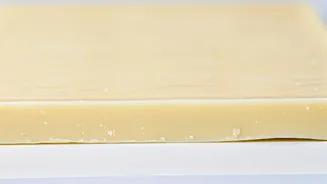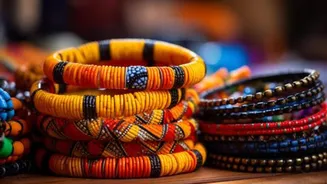Chocolate's Skin Link
The discussion often begins with the concept of chocolate and its potential advantages for the skin. However, it's essential to recognize that white chocolate differs
from other types of chocolate. The primary distinction rests in the ingredients; white chocolate usually includes cocoa butter, sugar, and milk solids. This means it lacks the cocoa solids present in dark chocolate, which contain flavonoids and antioxidants linked to skin advantages. Although research into the direct effects of white chocolate on the skin is still evolving, the ingredients within white chocolate might still provide certain skin benefits. Cocoa butter, a key element, is recognized for its moisturizing qualities. This can play a significant role in skin hydration, leaving it feeling softer and smoother. However, it's essential to manage expectations, since white chocolate's advantages may be more nuanced compared to the more potent effects of other types of chocolate, such as dark chocolate.
Cocoa Butter's Role
Cocoa butter is a significant component in white chocolate and is derived from the cocoa bean. Its rich composition has established it as a popular ingredient in skincare products. The primary advantage of cocoa butter is its ability to moisturize and hydrate the skin. It forms a protective barrier that seals in moisture, which keeps the skin hydrated and guards against dryness and flaking. The emollients present in cocoa butter can contribute to improving skin elasticity and suppleness. Regular application could contribute to minimizing the appearance of fine lines and wrinkles. Cocoa butter is also known for its potential soothing properties. These are useful in calming irritated skin, diminishing redness, and relieving discomfort associated with conditions like eczema. The high-fat content of cocoa butter can aid in enhancing the texture of the skin. This leads to a smoother, softer complexion, and it can also minimize the visibility of scars and stretch marks. Thus, the presence of cocoa butter in white chocolate may indirectly benefit the skin, even if the chocolate itself doesn't contain the same antioxidant properties as dark chocolate.
Antioxidant Potential?
The discussion about antioxidants in white chocolate demands scrutiny because it lacks the cocoa solids, which are rich in antioxidants found in dark chocolate. Antioxidants are substances that shield the skin from free radicals. Free radicals are unstable molecules that can damage skin cells and accelerate aging. Though white chocolate is not a primary source of antioxidants, it might provide some advantages. However, it is important to remember that the levels of antioxidants in white chocolate are significantly lower than in other types of chocolate. The antioxidants in white chocolate may not deliver as strong of an effect on skin health as those in dark chocolate. Therefore, while white chocolate contains some of the beneficial components, individuals seeking substantial antioxidant benefits for the skin would be better served by incorporating other sources into their diet, such as fruits, vegetables, or dark chocolate.
White vs Dark
When comparing white chocolate with dark chocolate, the variations are readily apparent, particularly regarding their effects on the skin. Dark chocolate is known for its higher concentration of cocoa solids, which contain powerful antioxidants. These antioxidants can fight free radicals and safeguard skin cells from damage, contributing to a youthful appearance. Dark chocolate may improve skin hydration and elasticity, offering a more significant advantage compared to white chocolate. The lower quantity of cocoa solids in white chocolate implies a limited presence of antioxidants. This implies that the potential skin advantages are not as prominent. It is critical to think about the other ingredients in white chocolate, especially sugar and milk solids. An overabundance of sugar in the diet could potentially cause inflammation and speed up aging, hence canceling out any advantages of cocoa butter. Overall, while white chocolate might provide certain benefits to the skin, dark chocolate offers a more robust source of antioxidants and greater potential advantages for skin health.
















